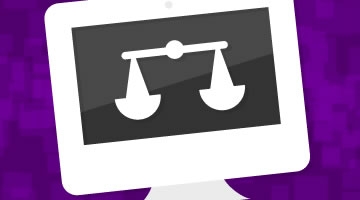Sometimes it is hard to know what you can and can’t do when it comes to music, film and TV online. Are you confused by streaming, ripping and converting? Find out more about what is and what isn’t legal below.
Making a digital copy of a CD that you own for your personal use can generally be done without legal consequences, even though technically it requires permission from the rights owner. However, if you then distribute that digital copy on the internet or with a friend it may result in legal action. For music purchased online, legal music download services generally allow you to make a copy as a backup for your own use on other devices.
There is extra protection on DVDs which makes it difficult for people to copy or rip films, but an increasing number now include a digital copy for you to watch on a portable device, but copying or ‘ripping’ the content and sharing it online or with a friend may result in legal consequences.
Streaming allows you to access content live via the internet. It is different to downloading in that you access and can ‘stream’ and listen to or watch the content in real time. With downloading you download the content to your device and can permanently access it whether online of offline.
Popular streaming services like Spotify and YouTube give instant access to tracks, films and videos, often for free, but they do not usually allow you to “rip” the content to make a permanent copy.
In some cases, entertainment is made available legally from blogs. However, links from blogs to music, film, TV or video stored on online storage services – called ‘cyberlockers’ – are generally not legal. In almost all cases, it won’t be legal to download a song, album, film or TV programme offered for download via a link to a cyberlocker.
It is illegal to upload or download copyrighted files without permission from the person who owns the rights. File-sharing services can in theory be used legally, but in practice nearly all the content on them is illegal. If they are sites that aren’t clearly licensed by copyright owners, then the only safe way to use them legally is to be sure you are sharing materials that are not protected by someone else’s copyright – such as music or films you create yourself.
When making a home video, people often want to add background music to it. This is allowed if the creator of the content has made a Creative Commons licence – this means the creator can waive some of the restrictions of copyright so that others can use and distribute their content, in line with the licence. For further information on legal ways of accessing music for use in in films, check out the music libraries recommended by First Light.
YouTube is an important channel used by film, TV and music artists to promote their work. If the artist, record label or studio has posted the content then they own the copyright to it. YouTube’s terms of service outline that users agree not to access content through technology and means other than the playback pages of the website or YouTube player. Stream-ripping from YouTube is not allowed under YouTube’s terms of service and is against the law.
